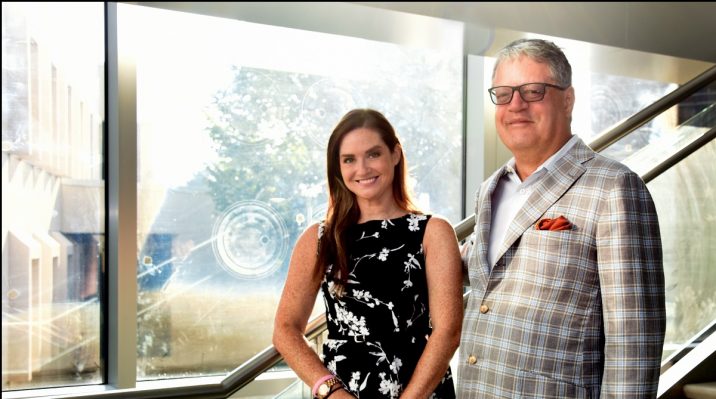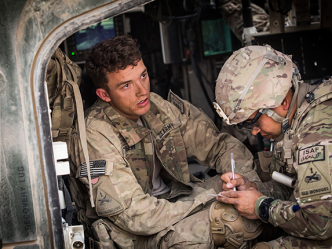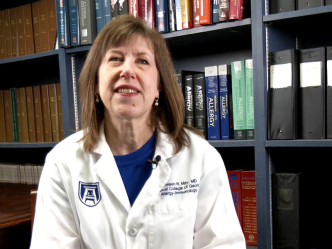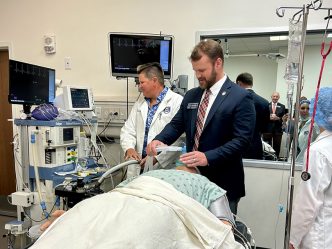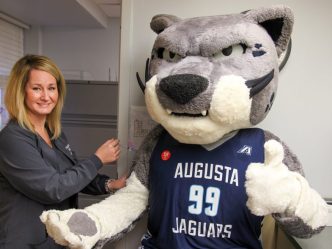While cancer attacks the inside of a person’s body, it can also leave patients with external deformation that will follow them for the rest of their lives. This is the case for female cancer patients who undergo a mastectomy.
For the breast surgical oncologist at the Georgia Cancer Center, as well as members of the plastic surgery team at Augusta University Health, the idea is to help these patients look and feel like the cancer was never there in the first place.
“There are multiple techniques available to Dr. [Alicia] Vinyard and our team for creating a new breast for these cancer patients,” said Dr. Edmond Ritter, a professor of plastic and reconstructive surgery. “These include breast implants, pedicled flaps, the autogenous flaps, such as the deep inferior epigastric perforator, or DIEP flap. The DIEP flap is our first choice for autogenous tissue reconstruction.”
Individualization is important. While implants and reconstruction meet the needs of many patients, the use of DIEP flaps is becoming more popular with breast surgical oncologists and plastic surgeons looking to give their patients a better outcome. Using the DIEP flap allows surgeons to cut down on some complications that can come with the old-fashioned TRAM flap or foreign bodies, such as implants.
“With the DIEP flap, we take healthy tissue from the abdomen, similar to the tissue discarded in a tummy tuck, and shape it into a breast. We take the blood vessels and nerves and connect to recipient vessels and nerves in the chest,” Ritter said.
Those blood vessels, known as deep inferior epigastric perforators, allow the flap to survive since the tissue has its own blood supply. Connecting the nerves in the chest allows Ritter and Dr. Alicia Vinyard, breast surgical oncologist at the Georgia Cancer Center, to assure that women regain maximal sensation.
“One of the criticisms of breast reconstruction is the belief that we are making these structures for women without any feeling in them,” Ritter said. “Taking nerves in our flap reconstruction and connecting them to nerves in the chest, which used to innervate breast tissue, optimizes outcomes.”
“Another reason for a patient to consider the DIEP flap procedure is due to how harsh radiation therapy can be on a woman’s chest wall,” Vinyard said. Use of implants for reconstruction in the face of radiation often leads to suboptimal results. Many patients who have suboptimal results with implants can have secondary reconstruction with great improvement in their results.
Another aspect making this partnership between Vinyard and Ritter a success involves how fast patients are scheduled for their surgery and reconstruction.
“I see them on Tuesday; Dr. Ritter sees them on Thursday,” Vinyard said. “We don’t want to delay a patient’s care when they may be concerned about what they’re going to do after finding out they have cancer. They have lives, they have worries and concerns.”
Ritter added, “One of the great strengths of the program is the team approach. We have two new world-class plastic surgeons who have joined the faculty: Dr. Lima, who recently completed our microsurgery fellowship here with us and body contouring fellowship in Iowa, and Dr. Agko, who also has dual fellowship training in microsurgery in Taiwan and aesthetic fellowship in Sweden. At our medical center, breast reconstruction is practiced at the interface of cosmetic and reconstructive surgery.”
“We have been early adopters of the innervation DIEP flap technique because of the patient outcomes we’ve seen,” Ritter said. “We have both heard from a lot of the patients under our care about how happy they are once the recovery process ends and their normal life resumes.”
 Augusta University
Augusta University
